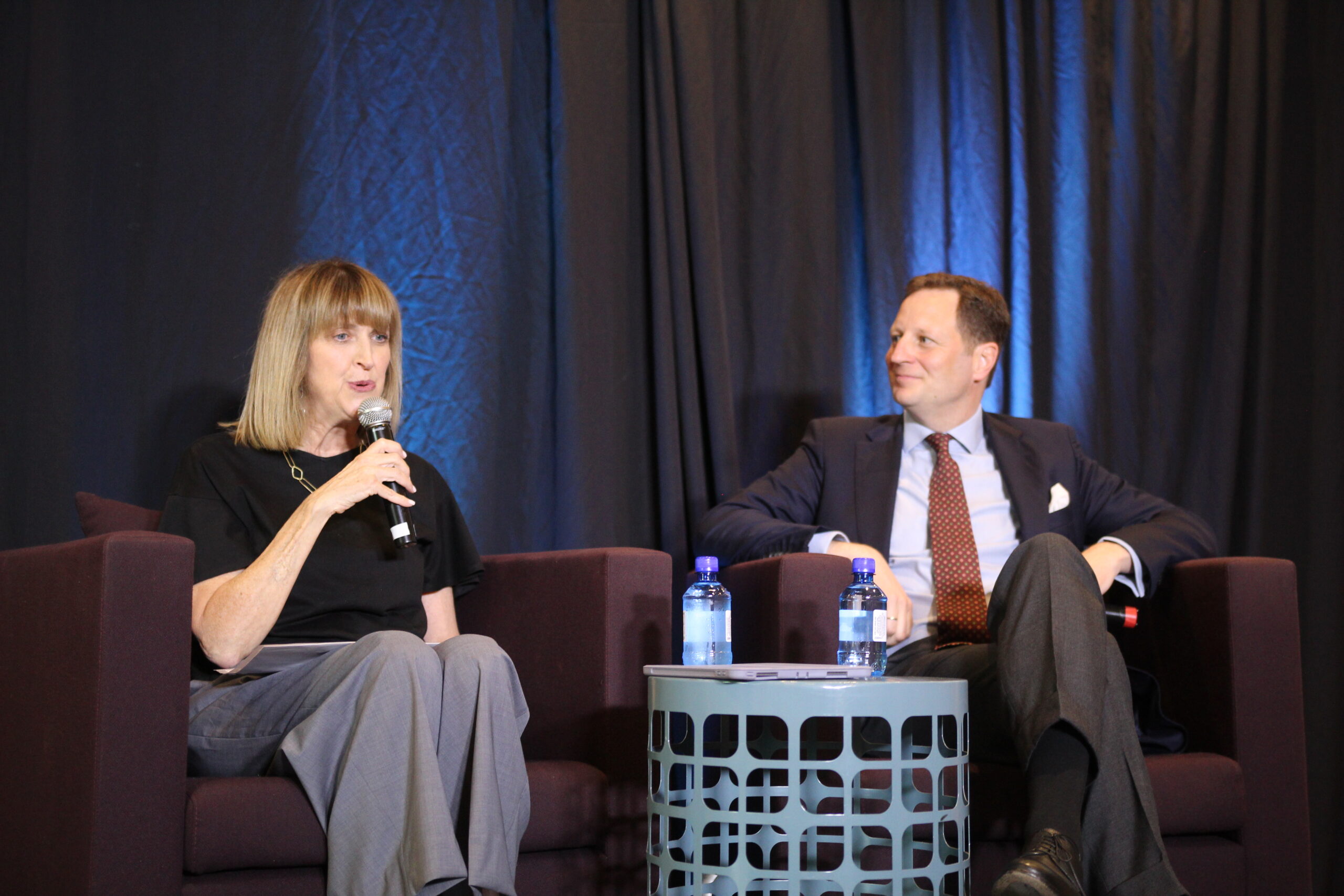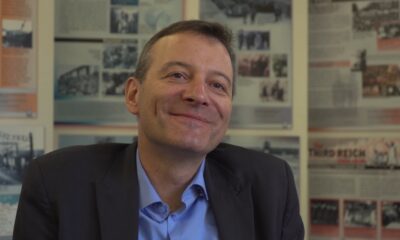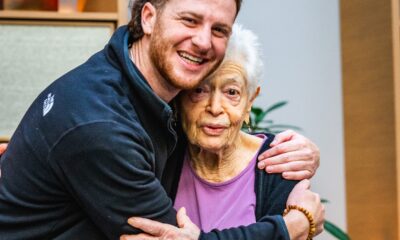
Featured Item

Holocaust Centre helps German prince confront family’s past
When Prince Georg Friedrich of Prussia was confronted with a moral dilemma concerning his great-grandfather’s Nazi ties, he sought advice from an unlikely source – the Johannesburg Holocaust & Genocide Centre (JHGC).
Visiting South Africa last week in solidarity with the work done by the JHGC, he spoke to the SA Jewish Report about his family history and the difficult choice he had made.
“Anyone who panders to right-wing extremism cannot be a tradition-setter for the House of Hohenzollern,” he declared in March 2023, when he renounced his claim to assets seized by the Soviet forces in 1945 that were associated with some problematic individuals in his family.
In so doing, he relinquished a legitimate claim against the German government of allegedly €400 million (about R8.2 billion), although he declines to comment on the exact amount. Prince Georg was responding to a moral quandary regarding his great-grandfather’s attempts to use the Nazis to enhance his political position. The JHGC provided input into this dilemma.
Prince Georg is the great-great grandson of the last Kaiser (Emperor) of Germany, Wilhelm II, who abdicated the throne in 1918 after Germany’s defeat in World War I. He’s also a direct descendant of Queen Victoria, the grandmother of Wilhelm II. After his abdication, the Kaiser and his family became ordinary citizens and were exiled to the Netherlands. His son, the last Crown Prince Wilhelm, later returned to Germany.
Since 1994, Prince Georg has served as head of the House of Hohenzollern. “While we don’t have any constitutional role anymore, we still have a special responsibility to our country, particularly in the field of culture. Most pieces of our private art collection are on public display across the country,” he said. “We also continue to own Hohenzollern Castle, our private residence, which is also successfully run as a museum, with about 300 000 visitors each year, helping us to keep the castle open to the public.”
Drawing on a family history of close to 1 000 years, Prince Georg started developing a particular interest in his past after he realised that some of his classmates didn’t know much about their grandparents. “I have a huge advantage in that the history of my family is literally an open book,” he said.
In more recent years, Prince Georg found himself confronting the past in a more critical way, especially the years between 1930 and 1945, which became an issue of national and international public interest due to his restitution claim. Under German law, restitution of assets seized by Soviet forces is possible only if the owner at that time didn’t enable communism or national socialism in Germany, aiding Hitler’s rise to power.
“Suddenly, everyone was talking about my great-grandfather, Crown Prince Wilhelm, who was head of the family at the time,” said Prince Georg. “He died in 1951, so I couldn’t meet him, and the oral history within our family didn’t cover his biography much because my grandfather, whom I knew very well, didn’t get on with him.”
Prince Georg therefore had to do his own research, but was later helped by historians to whom he opened the family archives. They discovered the “lights and shadows” surrounding the Crown Prince’s past. “There are serious shadows,” Prince Georg admits. “I think there’s a reflex in every family to protect family members, which is a good thing. But it doesn’t mean that you can’t also confront the past in a critical way because how else are you supposed to learn from it?”
While the Crown Prince wasn’t, as many claimed, officially a Nazi, unlike a brother who was an active member of the Nazi Party, he did have dealings with Nazi leaders. “While at times, he allied with reactionary pro-monarchy politicians within Germany to prevent Hitler from coming to power, he was also befriending and mingling with certain Nazi leaders. His ultimate goal was to restore the monarchy, not to bring the Nazis to power. But part of the truth is that by his actions against the first democracy on German soil, he played a role in bringing down the Weimar Republic.”
This history became a highly political issue, one that Prince Georg grappled with. “I had great help, especially from Tali Nates [the founder and director of the JHGC], and David Fine [on the JHGC’s board of trustees],” he said. “We were brought together by chance, but looking back, I’d say this meeting was meant to happen.”
Connected by Prince Georg’s good friend, Nico Raabe, who Fine knew through work, the two met 18 months ago at a dinner Fine hosted in Berlin. “We spoke about being engaged in one’s family,” Prince Georg recalled, “and I told him about the issues I was facing. Then David smiled and said, ‘I know someone else who is engaged in the past and confronting family history even if it’s from a completely different angle,’ and he ultimately introduced me to Tali.” Over the next few months, they discussed his dilemma over video calls and met at Hohenzollern Castle last year.
The complexity Prince Georg faced was that his legal advisors told him to continue with the claim and decide what to do about his great-grandfather’s past afterwards. “We discussed whether that was the right path,” Fine said. “The question was, what will you have in the end? Do you still want this blemish in your family history? We left him with these questions, and he had the courage to decide to relinquish the claim.”
Though Prince Georg knew he could win the case, he couldn’t close his eyes to his family’s history. “Being legally right doesn’t necessarily mean you’re morally on the right road,” he said. He knew he had to choose the difficult path of acknowledging his ancestors’ mistakes and trying to understand why they acted as they did.
Reflecting that life is never black and white, he pointed out that among his ancestors was an uncle who was taken to a concentration camp for being a homosexual, and his grandfather, Prince Louis Ferdinand, who in fact was close to key leaders of the military resistance within Germany in 1944 at great risk to himself.
“You can be courageous only if you’re actually afraid of something,” Prince Georg said. “Of course, I was afraid of confronting my family history and also deeply hurt by things the media claimed about my family,” he said, “so I had to find out myself.” The relief he felt when he dropped the claim and opened this discussion reassured him that he made the right decision.










